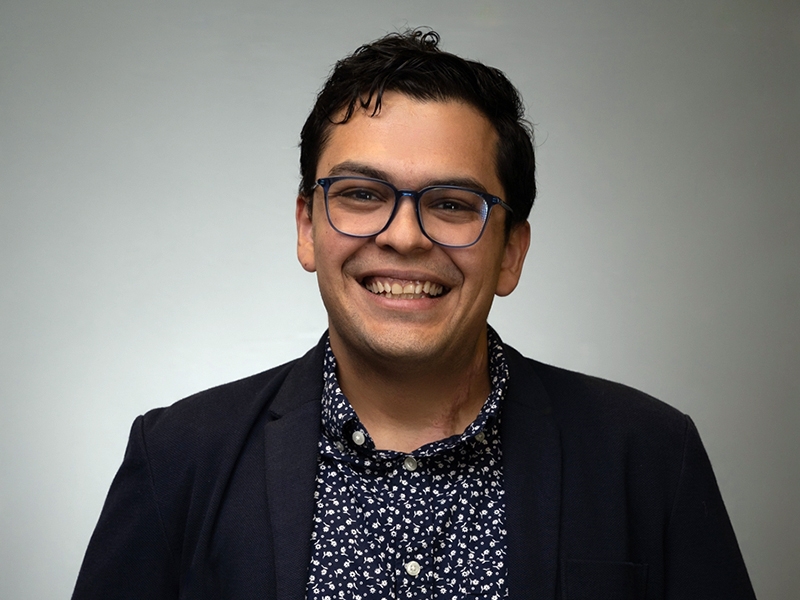The Federation of American Societies for Experimental Biology, the nation's largest biomedical coalition and leading collective policy voice of 22 scientific societies, announced that Julio Molina Pineda, a doctoral candidate in cell and molecular biology, will be part of the latest cohort of their prestigious Howard Garrison Advocacy Fellowship.
This competitive program is designed to equip scientists with the essential skills and knowledge needed to effectively advocate for scientific research and policy, with successful applicants selected based on their academic achievements, research experience and commitment to science advocacy.
Molina Pineda, born and raised in Tegucigalpa, Honduras, received a Doctoral Academy Fellowship to pursue his Ph.D. at the U of A. His dissertation research focuses on using yeast genetics and natural variation to understand why certain individuals are particularly susceptible to toxic effects of the Parkinson's disease related protein alpha-synuclein.
His doctoral adviser is Jeffrey A. Lewis, associate professor in the Department of Biological Sciences in the Fulbright College of Arts and Sciences. Lewis said, "This fellowship rightly recognizes Julio's dedication and commitment to being a leader in science, and I continue to be proud of his many accomplishments."
Besides advancing his predoctoral work and teaching duties, Molina Pineda has sought out leadership roles both inside and outside the U of A. On campus, he served two terms as president of the Biology Graduate Student Association (BioGrad), which he now represents in the Graduate Professional Student Congress. He currently is the president of the Cell and Molecular Biology Association and contributes historical and cultural perspectives for the Central American Student Alliance's (CASA) newsletter.
Molina Pineda has also been highly active within the Genetics Society of America's Early Career Leadership Program, where he served as co-chair of the Policy and Advocacy Subcommittee and published several pieces and interviews on science policy ranging from the genetics of migration to scientific elitism and bioethics. Now as an HGA Fellow, Molina Pineda plans to take this opportunity to hone his skills on advocacy for scientific-based policies, especially focused on uplifting the voices of underrepresented groups in both biomedical science and society in general.
The Federation of American Societies for Experimental Biology's Howard Garrison Advocacy Fellowship provides comprehensive training and hands-on experience to equip scientists with the tools necessary to make a positive impact on science policy. As part of his fellowship award, Molina Pineda will attend FASEB's annual Policy Committee Symposium, where he will participate in discussions with leading experts about the future of the biomedical research workforce.
Molina Pineda said he believes that his selection for this fellowship highlights the importance of international scholars in science, and he is immensely grateful for the opportunity, as he hopes to one day use these experiences to improve the research enterprise of his home country, Honduras.
Topics
Contacts
Department of Biological Sciences,
Fulbright College of Arts and Sciences
479-575-3251,
